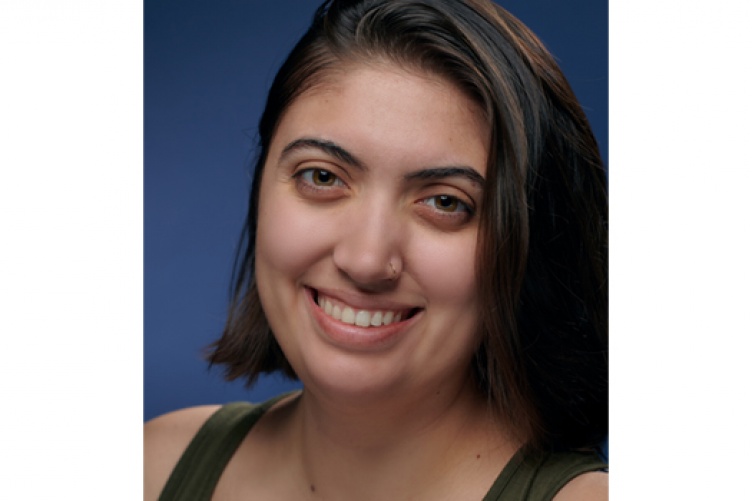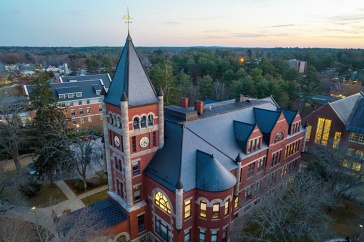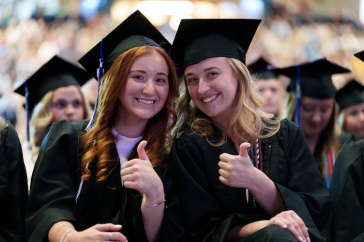
Student veterans are a diverse group of ambitious, results-driven individuals—drawn to higher education for different reasons, but with the shared mission of achieving their academic and professional goals. We spoke with U.S. Air Force veteran and psychology major Adriana Campbell ’21 about her military service and college experience.
In which branch of the military did you serve?
I served in the U.S. Air Force. I was a crypto-linguist initially and trained to learn Iraqi Arabic. I then transferred to Contracting, which is basically making purchases for the government’s needs through contract writing and contractor bids.
How do you apply your military experience to your education?
The military taught me to have a lot of perseverance. Even if you’re struggling, having a hard time, falling behind, failing at something—keep going and keep pushing forward as best you can. Failure isn’t the worst thing in the world. It’s a chance to learn something that you may be able to teach someone else.
How has your experience in the military and in college prepared you for your future?
The military and UNH Manchester have both taught me a lot to prepare me for my future. The military taught me to be confident, have patience, and to recognize the value of solid support systems. UNH Manchester has taught me that there’s still a lot I don’t know, and every day there’s a chance to learn something new.
What would you like people to know about the life of a student veteran?
Veterans in general are more inclined to keep to themselves in most situations and that includes class time. If you recognize a veteran in your class, try to reach out every once and a while and chat with them. You might be surprised at how receptive we can be.
What advice would you give to veterans who are thinking about pursuing a college education?
Do it! And when you do, utilize your benefits! Ask your VA Representatives about your G.I. Bill and about Vocational Rehabilitation. A lot of veterans don’t seem to know about Voc Rehab but it’s a great program that more people should be aware of. If one door closes, keep pushing for your needs—you are your biggest advocate.
What are your hopes for after graduation?
I’d like to work in a clinical capacity, perhaps with my own practice one day. I haven’t decided on a focus yet, but as of right now I’d like to work with non-English speaking communities, homeless communities, and veteran/military families dealing with PTSD and the fallout of PTSD.
















































